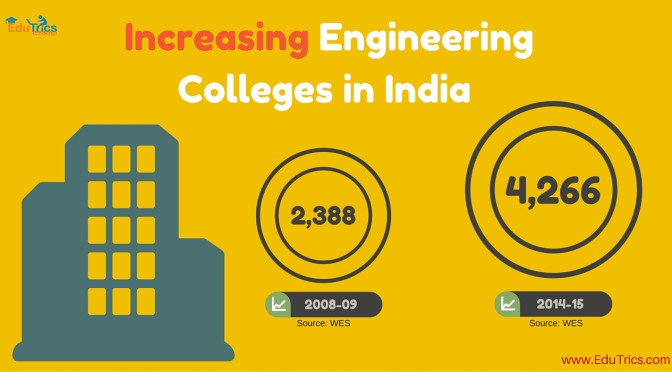
Indian students are known for their talent to perform well in technical education such as engineering. In fact, the number of engineering colleges in the country can be counted in 1000s. This scaling has occurred over the past decade alone. Therefore, it is no surprise that India is now producing more than half a million graduates in the field of engineering annually. These engineering graduates are, of course, spread across the different states. Does this make things any better? As a matter of fact, it does not. Producing such a high rate of engineering graduates annually has its repercussions.
According to India’s Largest Employability Test conducted on more than 120,000 engineers in the country, there is a decreased employability rate of engineers throughout the country. This test, also known as AMCAT, accurately measures and predicts the employability of engineers. Technical roles such as those in IT services, BPOs, IT product and technical support are considered.
Contrary to popular belief, increasing the number of engineering colleges in India does not solve the issue of quality. Indeed, there is a problem regarding the quality of engineers produced in the country. Quantity is definitely present, but quality is often missing. Instead of investing money on the opening of more engineering colleges, the authorities should focus on improving the standards of education.
Despite the rising number of engineering colleges and the high number of engineering students in India, many graduates are unfit for hire. This situation arises due to a lack of basic skills. For instance, only a few graduates can use the English language for effective communication. Also, many graduates have poor reading comprehension skills. Critical thinking, which is required in every work position, is barely seen in engineering graduates.
The increased number of engineering colleges inevitably leads to an increase in bureaucracy. Again, this has consequences for the development of the student. For example, rote learning is emphasized instead of developing necessary work skills. Also, by keeping the tuition fees low, the Government provides increased access to students. However, the side effect is that teacher salaries are kept low as well. Budgets are also low.
In India, it is a matter of proud and great accomplishment to possess an engineering degree. However, the main focus industry has shifted from the engineering industry. Of course, the need for engineers is there, but that industry is almost saturated. India’s global industries with high growth qualify engineering graduates as unemployable as they do not meet the necessary requirements to fill in the available positions.
According to the National Association of Software and Services Companies, the number of seats in engineering colleges in India has reached almost 1.5 million. This shows an increase of approximately fourfold the number of seats in 2000. Still, 75% of technical graduates are unfit for employability in the high-growth industries.
This is an alarming issue that should not be taken lightly. There is a great need for a shift in the mentality of Indians regarding engineering. Other sectors should be given equal, if not more, importance. In fact, it is important to adapt to the growing needs of the job markets instead of fixating on a particular field. In any case, increasing the number of engineering colleges in the country is definitely not the way to go at this moment in time.